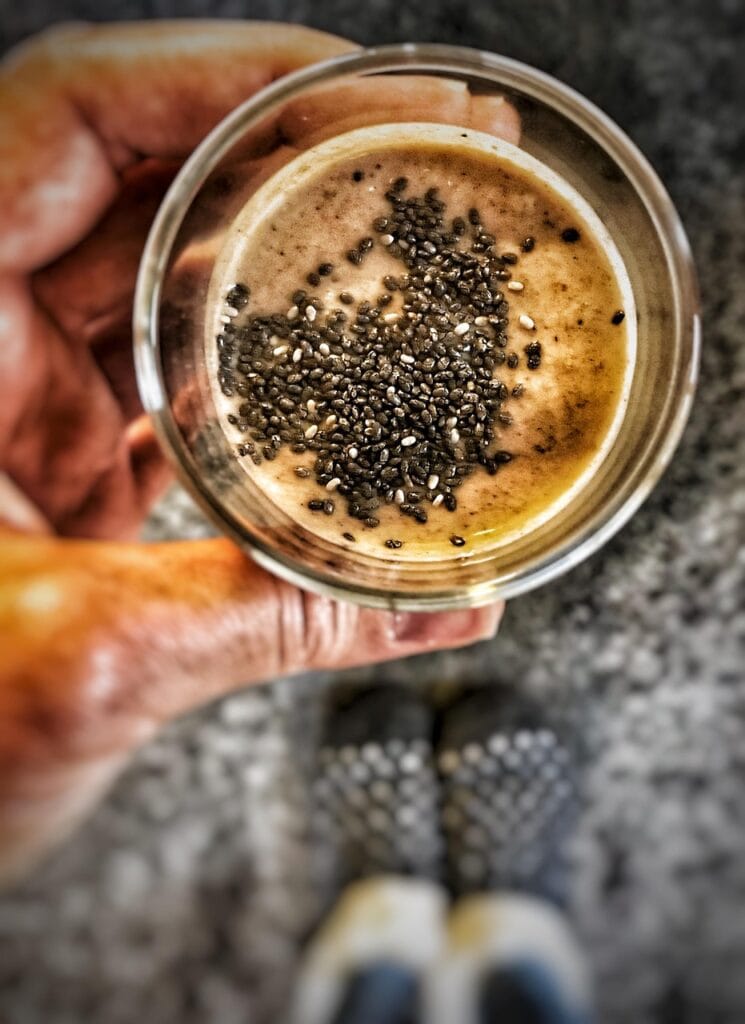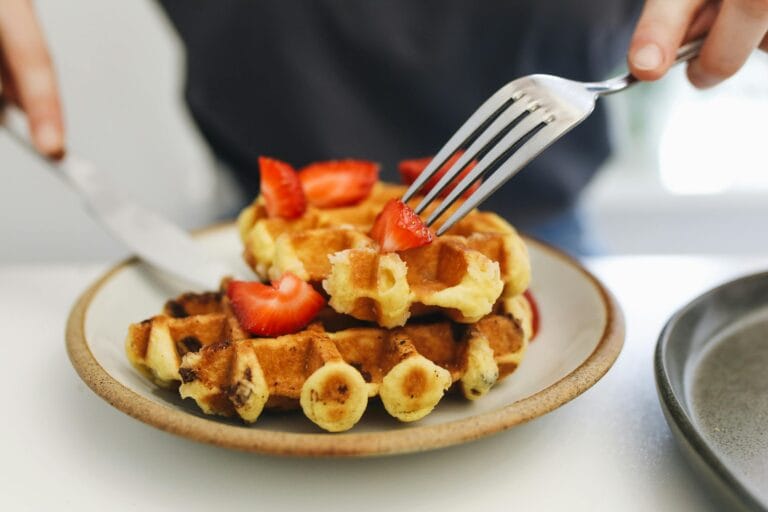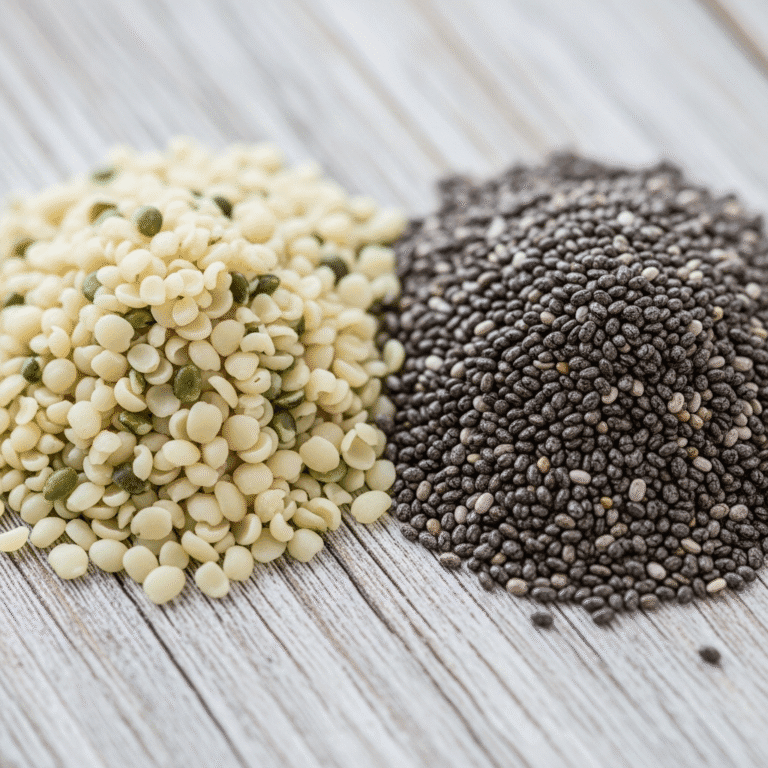FREE SHIPPING OVER $50
Stop Mixing Chia Seeds With These 5 Foods—It Could Be Sabotaging Your Health Goals

You’re doing everything right. You’ve added a spoonful of chia seeds to your morning smoothie, your yogurt, or even your water bottle, all in the name of getting more fiber, Omega-3s, and other powerful nutrients. But then something happens. Instead of feeling energized and light, you feel bloated, gassy, or you start to experience digestive issues that you can’t quite explain.
You might be tempted to blame the chia seeds themselves, but the truth is, the problem might not be with the seeds at all. It could be a simple yet critical mistake you’re making with what you’re mixing them with. The foods you combine with your chia seeds can either unlock their full potential or, in some cases, completely sabotage your health goals and leave you feeling worse than when you started. By understanding the science behind how these tiny seeds work, you can make a few simple changes to your routine that can make all the difference.
The Power of Chia Seeds: Why They’re a Health Superfood
Before we get into the mistakes, let’s take a moment to appreciate why chia seeds became a health trend in the first place. These small but mighty seeds are a nutritional powerhouse, packed with a unique combination of nutrients that are essential for a healthy body.
- Fiber: A single ounce (about two tablespoons) of chia seeds contains almost 10 grams of fiber. This is a massive amount, and the primary reason chia seeds are known to support digestive health. This fiber is a mix of both soluble and insoluble types, working together to help regulate bowel movements and keep you feeling full and satisfied.
- Omega-3 Fatty Acids: Chia seeds are one of the best plant-based sources of alpha-linolenic acid (ALA), an essential Omega-3 fatty acid. Omega-3s are vital for heart health, brain function, and reducing inflammation throughout the body.
- Vitamins and Minerals: Beyond the big two, chia seeds are a great source of essential minerals like calcium, magnesium, and phosphorus, all of which are crucial for bone health.
The unique power of chia seeds comes from their ability to absorb a remarkable amount of liquid—up to 12 times their weight. When they get wet, they form a thick, gel-like substance. This is what helps them slow digestion, stabilize blood sugar, and contribute to that feeling of fullness. But it’s this very same property that makes them so sensitive to the foods you pair them with.
The Critical Mistake: How Chia Seeds Interact with Food
The foods you choose to mix with chia seeds can have a direct impact on their ability to work correctly in your body. The problems typically fall into two main categories:
- Hydration Hindrances: The high fiber content of chia seeds requires a lot of water to function properly. If they don’t get enough liquid, they can swell up in your digestive tract and absorb water from your body, leading to constipation, cramping, and bloating.
- Nutrient Interference: Certain food compounds can bind to the nutrients in chia seeds or hinder their absorption, meaning you might not be getting all the benefits you think you are.
Now that we understand the science, let’s get into the specifics of what you should avoid.
Stop Sabotaging Your Health: The 5 Foods to Avoid Mixing with Chia Seeds
These five food combinations can turn a simple health hack into a source of digestive issues and nutrient loss.
1. Caffeinated Drinks
It has become a trendy new mixture: adding chia seeds to your morning cup of coffee. While the combination of energy and fiber might seem appealing, it can be a recipe for disaster. Caffeine is a diuretic, which means it causes your body to expel water. This directly contradicts what your chia seeds need to do their job. When you consume chia seeds with a liquid that is actively trying to dehydrate you, they may not have enough water to expand fully. This can lead to them clumping together and absorbing water from your body, resulting in serious discomfort and constipation.
2. Processed Juices or Sodas
You might think that mixing chia seeds with a juice or soda is a simple way to get a dose of health. The problem is, these beverages are often loaded with refined sugar and high fructose corn syrup. Chia seeds are celebrated for their ability to help stabilize blood sugar, but when you add them to a sugar-laden drink, you’re essentially canceling out this key benefit. The massive sugar load can still cause a blood sugar spike, and the chia seeds are unlikely to be able to counteract the negative effects of the sugar on your health goals.
3. Foods High in Phytic Acid
This might be the most surprising and little-known mistake. Phytic acid, or phytate, is a compound found in many plant foods like nuts, grains, and legumes. Chia seeds themselves contain phytic acid. The problem is that phytic acid is known as an “anti-nutrient” because it can bind to essential minerals like iron, zinc, and calcium, preventing your body from absorbing them. If you combine chia seeds with other foods high in phytic acid, you can create a double-whammy of nutrient malabsorption. For example, adding chia seeds to a bowl of granola or a nut-based smoothie could be hindering your body’s ability to get the very nutrients you are trying to consume.
4. Heavy Dairy Products
A chia seed pudding made with thick, whole milk or a full-fat yogurt might taste delicious, but it can be a digestive nightmare for many people. Chia seeds and their high fiber content already slow digestion. When you combine them with heavy, high-fat dairy, which also takes a long time to digest, you can create a sluggish feeling in your stomach that leads to bloating and gas. For individuals with a dairy sensitivity or lactose intolerance, this combination can be especially uncomfortable.
5. Dry, Low-Water Foods
The very thing that makes chia seeds so good for you—their ability to absorb water—is also what can make them dangerous if not prepared correctly. This is why you should never mix unsoaked chia seeds with dry foods like granola, cereal, or even a powder blend. If you consume dry chia seeds without enough liquid to let them fully expand, they can swell in your throat or stomach. This can lead to a choking hazard or a painful blockage in the digestive tract. Always ensure you are soaking your chia seeds in a generous amount of liquid for at least 30 minutes before consuming them.
The Fix: Simple Swaps for a Healthier Gut
Thankfully, you don’t have to give up on chia seeds to achieve your health goals. The solution is all about making smarter, more informed choices with what you mix them with.
- Instead of Caffeinated Drinks: Opt for plain water, herbal tea, or a clear, healthy liquid to mix with your chia seeds. This ensures they have plenty of hydration to swell properly and perform their digestive work.
- Instead of Processed Juices: Use fresh, whole fruits blended with water or a low-sugar plant-based milk. This gives you natural sweetness and a good source of vitamins without the sugar crash.
- Instead of High-Phytic Acid Foods: Consider soaking your chia seeds overnight. Soaking can help break down some of the phytic acid, making the nutrients more bioavailable. You can also pair chia seeds with foods that are low in phytic acid, such as fresh fruits and most vegetables.
- Instead of Heavy Dairy: Choose a plant-based alternative like almond, oat, or soy milk. These options are lighter on the digestive system and can create a perfectly creamy chia seed pudding without the discomfort.
By making these small adjustments, you can unlock the full potential of chia seeds and avoid the common pitfalls that can derail your progress.
The Long-Term Impact of Using Chia Seeds Properly
Making these simple changes is about more than just preventing temporary discomfort. It’s about setting yourself up for long-term health and success. When you consume chia seeds correctly, you can experience a ripple effect of benefits throughout your body.
- Improved Digestion: A well-hydrated, properly functioning gut is the foundation of good health. By avoiding foods that hinder your chia seeds, you’re supporting your digestive system to work smoothly, which can lead to better nutrient absorption and regular bowel movements.
- Stabilized Energy: By allowing chia seeds to properly regulate your blood sugar, you can avoid the energy spikes and crashes that come from sugary drinks and refined carbs.
- Consistent Results: When you’re no longer experiencing bloating and discomfort, you’re more likely to stick with your healthy habits and finally achieve the health goals you’ve been working towards.
Conclusion
In the end, chia seeds are an incredible food that offers immense benefits, but they are not a magic bullet. They are a powerful tool that requires a little bit of knowledge and care to use correctly. By stopping these common mixing mistakes and opting for healthier combinations, you can turn a source of frustration into a powerful ally in your journey toward a healthier, happier you.
Related Articles
- Frozen Foods That Lower Blood Pressure? Dietitians Swear by These 8 Picks That Are Already in Your Supermarket
- Stop Wasting Money on Vitamin B12 Supplements —These 10 Foods Boost Brainpower Naturally
- Craving Fries? This Science-Backed Potato Hack Helps You Avoid Blood Sugar Spikes
- Tired of Feeling Hungry Before Lunch These 10 Breakfast Hacks Pack Serious Fiber and Protein
- Bananas or Plantains? One Packs More Nutrients—And It’s Not What You Think







